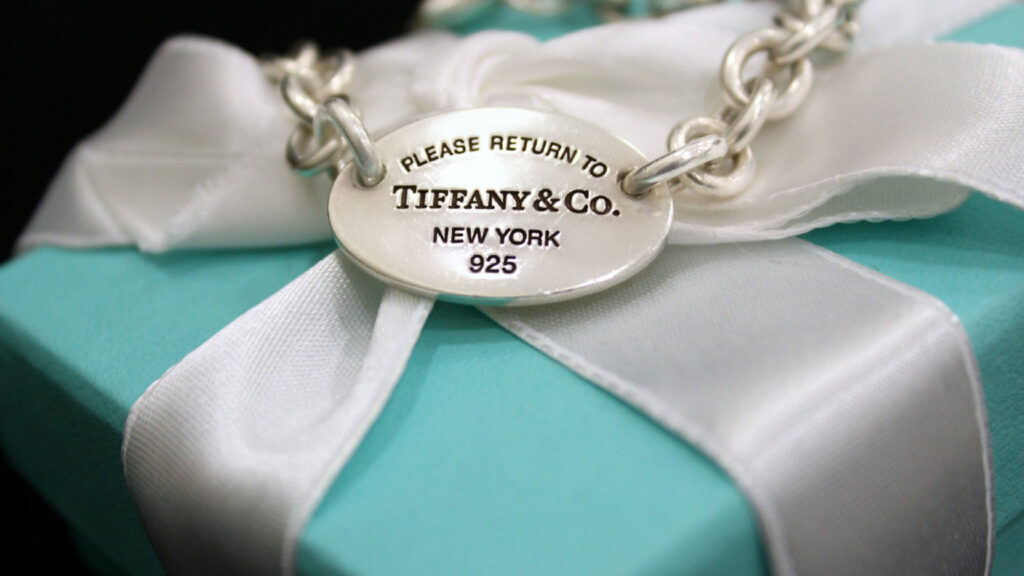For wealthy people, the problem of saving and increasing capital is a constant “headache”. Wealthy customers around the world have long perceived the purchase of luxury goods not so much as an element of status consumption but as a long-term investment. Against the background of lower rates on deposits and classic savings instruments they turn their eyes towards alternative, often exotic investment options.
Someone buys a rare wine. Some people prefer art objects. There are also those who buy accessories of famous luxury brands in the hope of selling them to someone in a year or two with a decent margin. But few people know that most of all the growth in the popularity of Luxury goods is of great value to those who owned shares of companies that own and manage these brands.

Investments in shares of luxury goods manufacturers over time pay off as well as the collecting cars, jewelry and clothing themselves. This could be seen, for example, by long-term investors in the manufacturer of sports cars Ferrari: over the past five years the share price of this company has more than tripled.
Here are four reasons to invest in luxury stocks:
- Investors earned 127% on investments in the three largest luxury companies( LVMH, Hermes, Kering) in three years;
- About $ 600 billion is the capitalization of the 15 largest companies that own the largest luxury brands.. The top-3 players have 10 billion dollars on the balance sheet and they can easily borrow another 25 billion on the market;
- Gucci’s example is contagious: big brands are changing their positioning and focusing on “millennials” (Generation Z). Let’s analyze these factors in more detail. In recent years from the market capitalization of the three largest luxury companies grew by 127%. This is almost three times more than the investments in the S&P 500 index of the US stock market, which was considered one of the fastest growing assets brought to investors.

Moreover, in recent years, the American stock market like all the largest stock markets in the world has grown rapidly. But the growth in luxury stocks was even more significant. Investments in shares of companies that own luxury brands are available to almost any investor. This sector is represented in the financial market by a large number of large issuers. Their securities are quite liquid. You can easily create a high-quality diversified portfolio.
At the same time, the market is quite large: the total capitalization of the largest 15 public players exceeded $ 592 billion, their revenue (sales volume) over the past 12 months amounted to $ 162 billion. All of these companies generate profits and pay investors dividends. Last year alone these 15 companies paid almost $ 10 billion in dividends to investors. Increased interest in shares of companies that own luxury brands appeared after September 26, 2019, when the largest player in the market – the French company LVMH-announced the purchase of the famous American company Tiffany for $ 16.2 billion and two months later closed the largest deal in the history of the luxury industry.
A week after the deal closed there were rumors on the market about a possible M&A deal between two other giants of the sector – Kering and Moncler. It’s even more warmed up interest of investors to shares of companies of the luxury industry.
Consolidation of sector players through M&A transactions is often a favorable factor for minority shareholders. In a fast-growing market big players are willing to buy competitors or promising companies at a premium. So, for example, it turned out in the case of Tiffany: a French company bought an American jewelry manufacturer above market value. As a result, Tiffany’s stock price soared 43% in a few days. The buyer’s companies usually do not grow so much at the time of the transaction, but in the future, due to the synergy effect, they also grow.

The adaptation of large brands to the needs of millennials
Another important trend in the luxury market which increases its attractiveness to investors is the adaptation of large brands to the needs of millennials (Generation Z). That is, the conservative luxury industry is trying to become modern and dynamic. The most successful is the company Kering, which owns the Gucci brand. The change in positioning allowed the company to once again bring the brand to one of the first places in the world, actually “conquer” the Asian market and overtake competitors.
The victory in this competition has led to an increase in the company’s capitalization by more than 3 times over the past five years. Therefore, many other brands are now betting on millennials: changing collections, actively developing online sales and reducing the number of their own monobrand stores. Despite the significant growth of companies in the sector the market is still quite positive about the prospects for luxury shares.
Despite the slowdown in the global economy the level of consumption remains high and continues to grow. Moreover, the largest increase in the middle class and upper middle class segment occurs in large developing countries where the demand for luxury goods remains high and does not decrease even in a crisis.

In addition, major players in the sector retain access to very cheap lending and have relatively low levels of debt. This means that the activity of major players in terms of M&A transactions will at least not decrease, which fuels interest in the entire sector.
Conclusion
Based on all these factors investing in shares of luxury companies looks like a very attractive option. However, it is worth remembering that investing in any stock always involves certain risks. Before making a purchase decision you should properly assess your attitude to risk, determine your investment horizon and do not forget about portfolio diversification.
When starting to invest in stocks many people often make mistakes. To avoid them it is recommended to seek the help of professional investment consultants.








